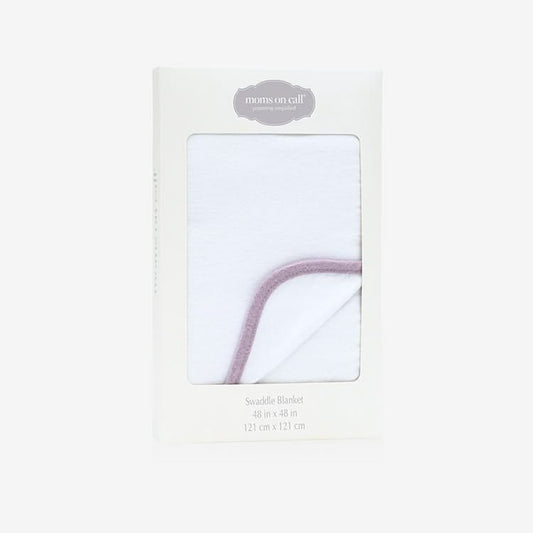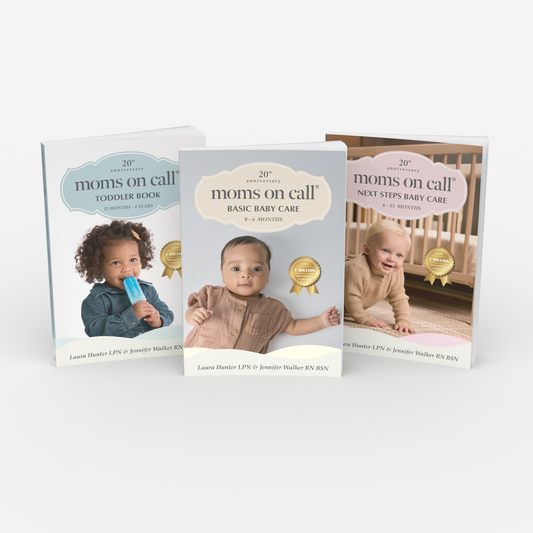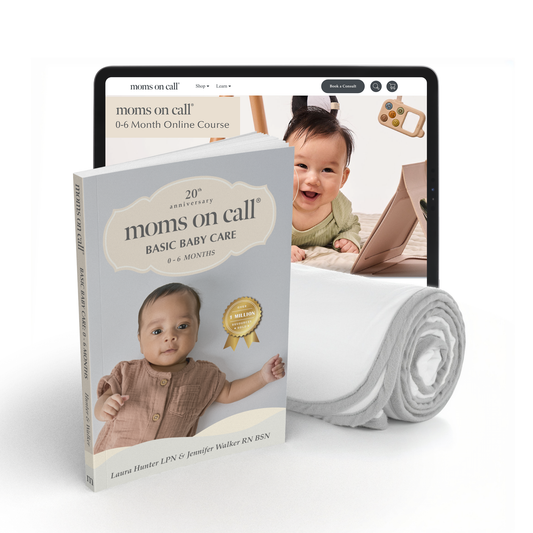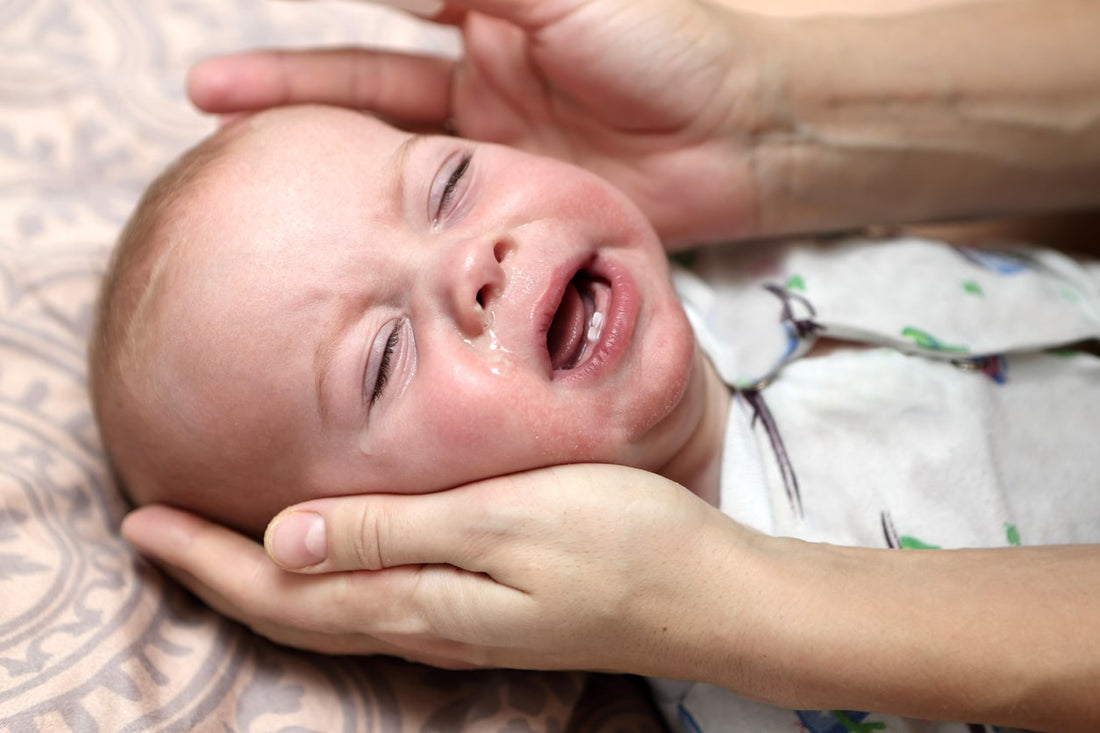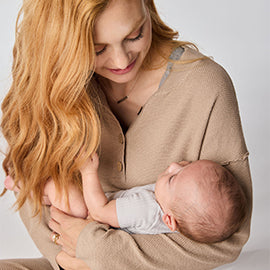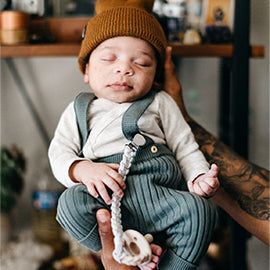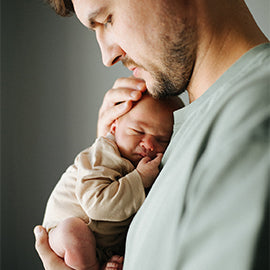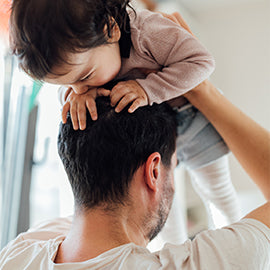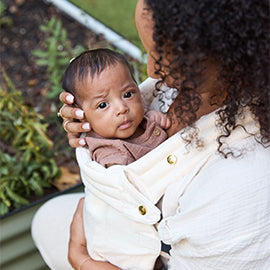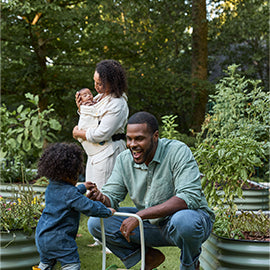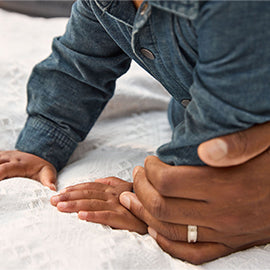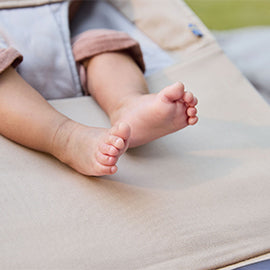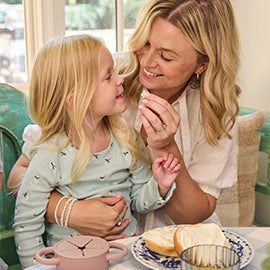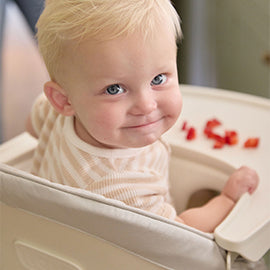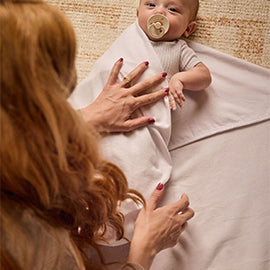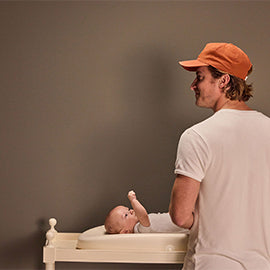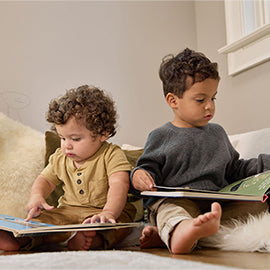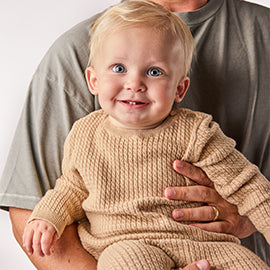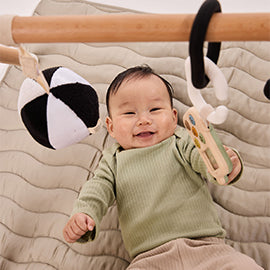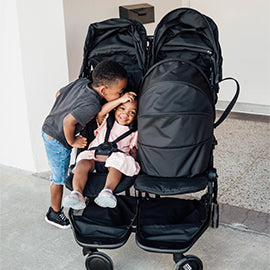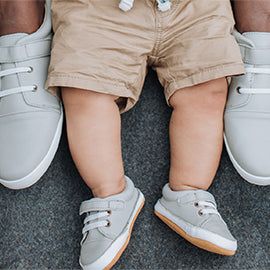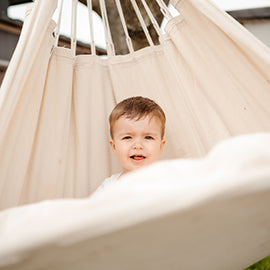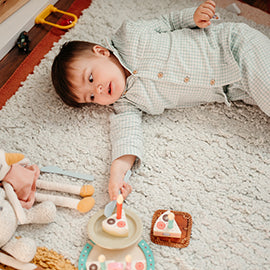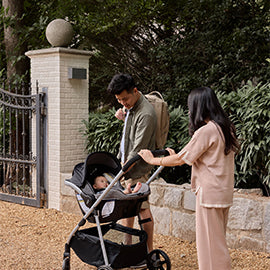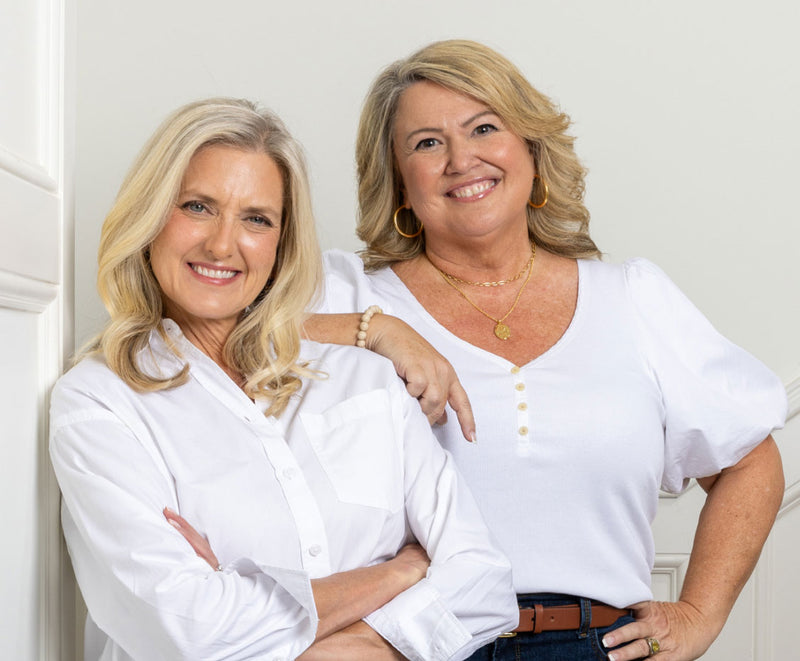Colds are inevitable — and not just during the winter season. Ready or not: babies typically contract 6-10 colds a year, and sometimes even more if they are in a childcare setting. As if feeding, diaper changing, and sleep training weren’t enough. Colds are about to become a more frequent part of your life.
What elevates colds in babies from a nuisance to something more challenging and, at times, scary for families is the fact that newborns are “obligate nose breathers.” Babies breathe through their nose, almost exclusively, for the first year of life. Nasal congestion impacts breathing and impairs the suck-swallow-breathe rhythm and can make sleeping less comfortable. So, when a cold takes hold, it affects not only breathing, but eating and sleeping as well.
In my work as a pediatric ENT, I have counseled countless families as their little ones struggle with colds, allergies, and respiratory syncytial virus (RSV), which begins with cold-like symptoms but can become much more serious; notably, in the most severe of cases, reduced oral intake can lead to dehydration, lethargy, and need for medical attention.
I founded Dr. Noze Best with a mission to provide relief to families who desperately want to comfort their baby—and who would also like to get back to sleep! We launched the NozeBot, an electric-powered baby nasal aspirator, earlier this year to help parents clear their baby’s nasal passages and bring their child some relief. The NozeBot equips families with hospital-grade suction, and the patented nosepiece is designed to require only two fingers, making it easier to stabilize and comfort your child during the process. It’s also an alternative to the aspirators on the market that use mouth suction. This feature helps you avoid breathing your child’s virus directly into your own lungs.
Why do colds cause so much snot? And why do children get sick so often?
Viruses are responsible for colds. As we have all become very aware, viruses are spread through the air and on surfaces. One of the first signs of a cold is often a runny nose. While annoying, the ample amount of snot our bodies produce both on a day-to-day basis and during a cold is a helpful bodily product. Your nose and throat are lined with glands in the mucus membrane that actually produce one to two quarts of mucus every day! (Yes, you’re swallowing this much mucus and don’t even notice it.) The purpose of this mucus is to keep the linings of your nose and sinuses moist, trap dust and other particles you inhale, and fight infections.
When you catch a cold virus, your mucous membranes become inflamed and your body sends that snot production into overdrive, both to defend your body against infection and as a means of ridding the body of what is causing inflammation in the first place. Your mucus also becomes thicker, because thicker mucus can make it more difficult for bacteria to settle on the linings of your nose.
Unfortunately for babies and young children, they can’t blow their own nose for years, making it extra hard for them to rid themselves of the excess mucus. This is where nasal aspirators can help.
So why do kids get sick so frequently? It’s actually part of building a healthy immune system. Mom’s immune system (antibodies) are passed to the baby and provide protection for six months. Babies begin to develop their own immune system from six months on and need to be exposed to viruses and other things in the environment to do so.
What should I do when my baby is sick?
There are several tools that can help manage your child’s symptoms during a cold—or detect something more serious.
Trust your instincts: First, if you child seems seriously sick, call your pediatrician. That is why they have answering lines—it’s ok to use them! Ask questions if something doesn’t seem right.
Check your baby’s temperature: You should have a handout for age-appropriate temperature guidelines from your pediatrician. If you are getting weird readings, you can check your thermometer on yourself. Fevers in newborns are always a concern and should be relayed to your pediatrician right away. If your baby is less than three months old, seek medical advice for a fever of 100.4 F or more.
Suck out that snot: Clear your baby’s nose with a nasal suction device. A lot of gunk in there will make it hard for your baby to breathe and can impact feeding. Non-medicated saline drops are also a great way to break up the congestion. Depending on the tools you have available, suctioning can be done before three feedings a day and before bed. With a NozeBot, you can suction before every feeding without irritation.
Adjust the room temperature: If the heat is on, the baby’s room can get dry and hot; on top of a fever, that can make them feel miserable. The room temperature should be set at a moderate range. I also recommend running a humidifier and keeping the humidity between 40-60% (too much moisture can cause mold). Humidity will also help control the temperature and loosen any mucus that is getting dried and blocking the nose.
Give them medicine—but check with your doctor: Medicines can also provide some comfort to your child if they have a fever. It’s essential to seek medical advice if your baby is under three months old and has a fever (100.4 F), has a fever accompanied by other symptoms, or is experiencing difficulty breathing. Once you have clearance from your pediatrician, you can use liquid Acetaminophen (commonly known as Tylenol) products. Read the instructions carefully on the medication label to ensure proper administration. Ibuprofen (over-the-counter Motrin or Advil) is also a fever reducer appropriate for children more than six months of age.
Rinse and repeat: Use non-medicated saline drops, suction nasal passages, control their temperature … and remember, this too shall pass.
Your baby’s first cold (and even the colds that come after it) can be nerve wracking, so feel free to lean on your doctor for advice. After all, that’s why we’re here.
You can learn more about the NozeBot and purchase the product here.
Dr. Goudy came to Atlanta as an academic pediatric ENT after spending 10 years on faculty at Vanderbilt University. He has grown the pediatric otolaryngology (ENT) faculty at Emory to the biggest and most diverse group in the South. In addition to providing clinical care, his NIH-funded research lab studies tissue regeneration to treat cleft lip and palate disorders, leveraging expertise at Emory and Georgia Tech. His experiences in the U.S. and in developing nations to surgically correct these disorders have influenced his line of scientific inquiry to improve the lives of children.
Dr. Goudy founded Dr. Noze Best to provide wellness solutions for children and peace of mind for their parents. The company went to market with the NozeBot, a baby nasal aspirator, in January of 2021.
